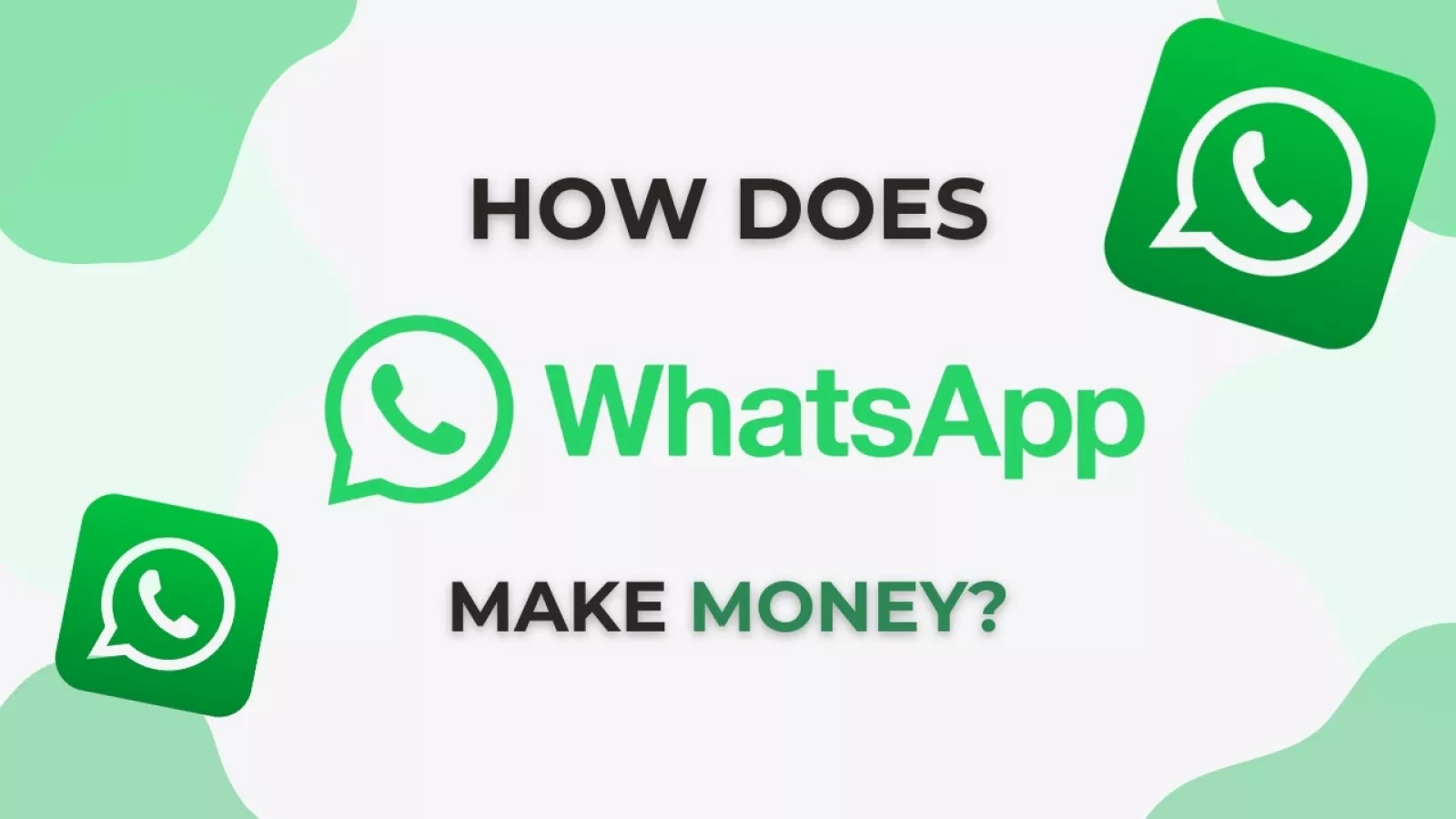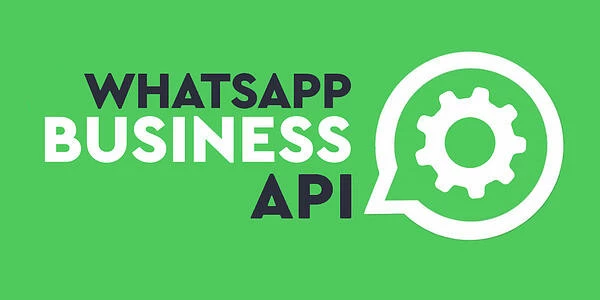
How Does Whatsapp Make Money?

by Roy Dovaston
WhatsApp, one of the most popular messaging apps globally, offers a free service to its users. However, its parent company, Meta Platforms Inc. (formerly Facebook Inc.), has developed various strategies to monetise the platform. Here’s an in-depth look at how WhatsApp generates income, its history, and its future revenue plans.
How Does WhatsApp Generate Income?
WhatsApp Business API
The WhatsApp Business API is a significant revenue driver for the platform and is the primary way that WhatsApp makes money through business accounts. It is designed for medium to large enterprises, allowing them to manage customer interactions at scale. Businesses are charged based on the number of conversations they initiate with customers within a 24-hour period. WhatsApp's revenue model ensures that businesses only pay for meaningful interactions. Advanced features like automated messaging, customer segmentation, and integration with CRM systems make this API a valuable tool for businesses.
Benefits:
Customisation and personalisation of messages.
Rich media support for enhanced customer experience.
Integration with CRM systems for seamless management.
Challenges:
Initial setup can be complex and requires approval from WhatsApp.
Costs can vary significantly based on message volume and region.

Click-to-WhatsApp Ads
Meta leverages its vast advertising network on Facebook and Instagram to promote WhatsApp interactions through Click-to-WhatsApp ads. These ads encourage users to start a conversation with a business directly on WhatsApp. While the advertisements are hosted on Meta’s other platforms, they drive traffic and engagement to WhatsApp, thereby indirectly contributing to its revenue through Meta’s broader advertising ecosystem.
Advantages:
Direct engagement with potential customers.
Enhanced user experience by reducing the steps to initiate contact.
Measurable interaction metrics to evaluate campaign success.
WhatsApp Pay
Introduced in select markets such as India and Brazil, WhatsApp Pay enables users to send and receive money directly through the app. This service utilises the Unified Payments Interface (UPI) in India and Facebook Pay in Brazil, allowing for seamless peer-to-peer transactions and payments to businesses. WhatsApp earns a commission on each transaction, providing a direct revenue stream from its financial services.
Key Features:
No transaction fees from WhatsApp itself, although bank charges may apply.
Secure transactions protected by end-to-end encryption.
Integration with existing banking infrastructure for easy setup.
Future Advertising Plans
Meta plans to introduce ads in the Status section of WhatsApp, akin to Instagram Stories ads. This future initiative is expected to open a new revenue stream by utilising WhatsApp’s vast user base for targeted advertising to WhatsApp users. Although this plan has not been fully implemented, it represents a potential shift towards a more ad-driven revenue model for the platform.
Potential Benefits:
Significant advertising revenue potential given WhatsApp's large user base.
Enhanced targeting capabilities using Meta’s advertising algorithms.
Additional value for businesses looking to reach a broad audience.
User Data
While WhatsApp’s messages are protected by end-to-end encryption, the platform can still utilise metadata, such as contact lists and transaction details from WhatsApp Pay, to enhance its advertising strategies across Meta’s ecosystem. This indirect use of data helps in refining ad targeting and improving user experience on Meta’s other platforms.
Ethical Considerations:
Strict privacy policies to protect user data.
Transparency about data usage to maintain user trust.
Compliance with regional data protection regulations.
How Will WhatsApp Make Money?
WhatsApp is exploring various avenues to bolster its revenue streams beyond its current strategies. One significant area of focus is the introduction of ads in the Status section, similar to Instagram Stories. This move could tap into WhatsApp's vast user base, providing a new advertising platform for businesses and generating substantial revenue. Additionally, WhatsApp Pay, currently available in India and Brazil, is expected to expand to other regions, further increasing transaction-based earnings.
Another potential revenue stream lies in enhancing the WhatsApp Business API. By offering more advanced features and integrations for businesses, WhatsApp can charge premium rates for value-added services. This could include detailed analytics, automated customer service tools, and seamless CRM integration. As businesses increasingly adopt digital communication tools, these enhancements could drive significant growth.

Who Invented WhatsApp?
WhatsApp was founded by Brian Acton and Jan Koum in 2009. Both were former employees of Yahoo!, and they sought to create an alternative to the expensive SMS services prevalent at the time. Their vision was to develop a simple, reliable, and secure messaging app that would allow users to communicate freely across the globe. Koum and Acton's commitment to user privacy and a seamless user experience played a crucial role in the app's initial design and philosophy.
Who Owns WhatsApp?
WhatsApp is currently owned by Meta Platforms Inc. (formerly Facebook). Meta acquired WhatsApp in February 2014 for approximately $22 billion, making it one of the largest tech acquisitions in history. The acquisition was part of Meta's strategy to expand its portfolio of messaging and social media platforms, alongside Facebook and Instagram. Despite initial concerns about privacy and data usage, WhatsApp has continued to grow under Meta's ownership, reaching over 2 billion users worldwide.
Why Is WhatsApp Free?
WhatsApp is free to use for several reasons. Initially, the app operated on a subscription model, charging users $1 annually after the first free year. However, this model was phased out in 2016, and the app became entirely free. The shift to a free model aimed to maximise user growth and engagement, making the platform more attractive to a broader audience.
By keeping the core messaging service free, WhatsApp ensures widespread adoption, which in turn drives the success of its revenue-generating features such as the WhatsApp Business API, Click-to-WhatsApp ads, and WhatsApp Pay. This user-centric approach allows WhatsApp to build a vast and engaged user base, providing valuable opportunities for businesses and advertisers.
Conclusion
WhatsApp's revenue model has evolved from its initial subscription-based approach to a multifaceted strategy that includes WhatsApp business services, advertising, and financial transactions. By focusing on providing value to businesses and integrating with Meta’s extensive advertising network, WhatsApp continues to thrive as a free service for users while generating significant revenue. As the platform explores new monetisation avenues, it remains a crucial component of Meta’s overall business strategy.